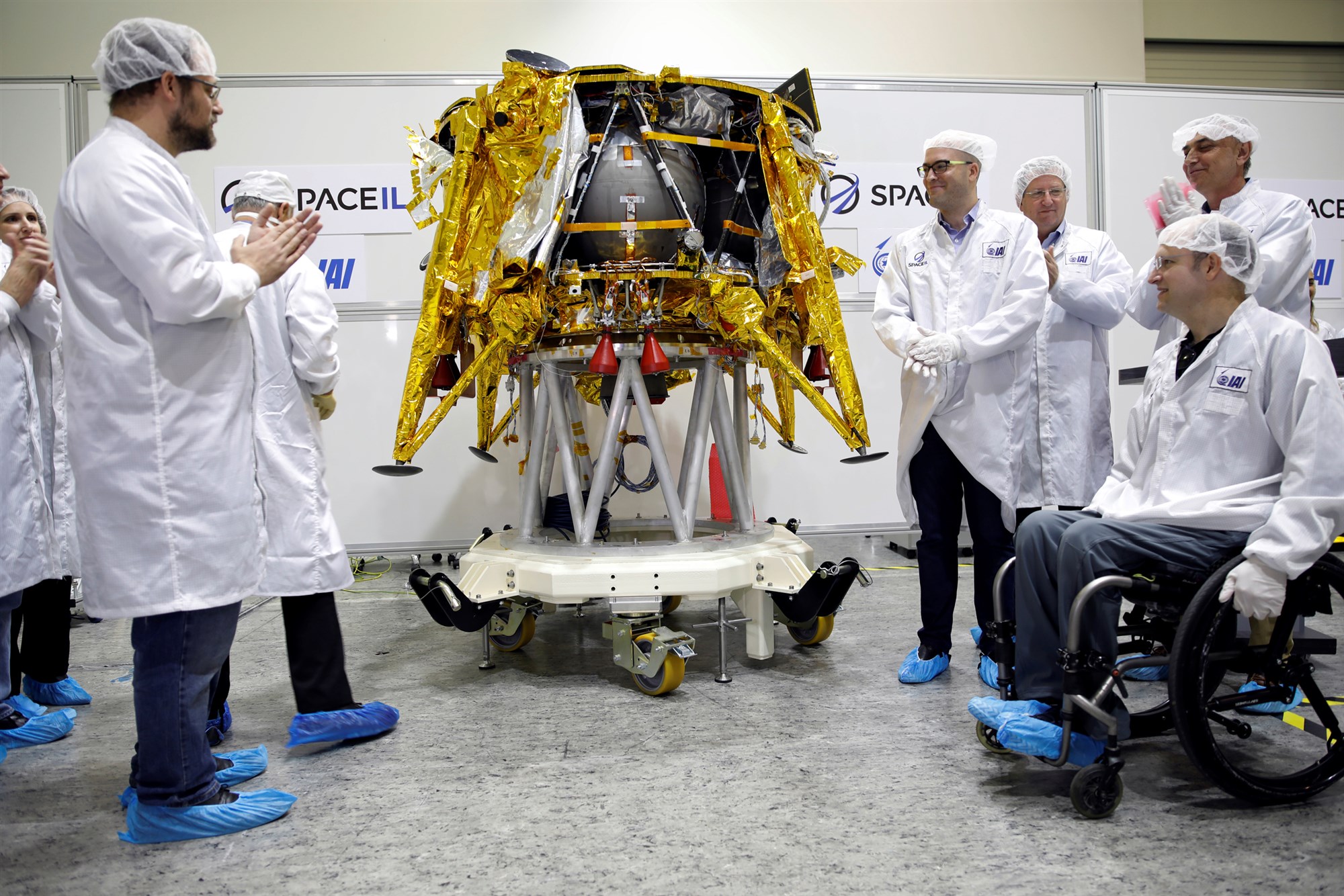First private space probe on the moon could bring new era of space exploration'
Beresheet is the first word of the Hebrew Bible, meaning “in the beginning.” It’s also the apt name of the robotic lander that an Israeli start-up is planning to launch to the moon on Feb. 21.
If the mission succeeds, Beresheet will be the first Israeli spacecraft to travel beyond Earth orbit and the first private lander on the moon. The mission could also mark the beginning of a new spaceflight era — one in which companies go where previously only nations have gone.
John Horack, an aerospace engineer at Ohio State University and a spaceflight expert, is giddy at the possibilities. “Nothing like this has been tried before,” he says. “We’re looking at an entirely new model for space exploration beyond Earth orbit.”
From its funding to its engineering to its modest size (Beresheet is about the size of commercial refrigerator), almost everything about the Israeli probe goes against tradition. Its inspiration sprang not from a government program but from the Google Lunar XPrize, an "American Idol"-like competition that promised $30 million to any private team that could put a lander on the moon, have it travel 500 meters (about 1,600 feet) and send back photos and video documenting its journey.
In 2009, the XPrize captured the imagination of Yonatan Winetraub, at the time a 22-year-old Israeli aerospace engineer who was spending a year at NASA’s Ames Research Center in Mountain View, California. He wondered: Why not try out for the moonshot award himself? “Unfortunately, I couldn’t find people who were crazy enough to follow my idea,” he says.
When Winetraub returned to Israel, he met two kindred spirits, computer engineer Yariv Bash and entrepreneur Kfir Damari. “The three of us sat down in a bar in the suburbs of Tel Aviv, and as the alcohol level went up we were becoming more and more determined to do this thing,” he recalls. That was when the trio founded SpaceIL, the nonprofit that created Beresheet.
It’s been high drama ever since. SpaceIL submitted its proposal to the XPrize committee just 45 minutes before the Dec. 31, 2010, deadline. The first three concepts for Beresheet failed their engineering evaluations, teaching SpaceIL painful lessons in how to get the most out of every drop of fuel. And when the XPrize competition expired last year without a winner, SpaceIL had to scramble for funds to complete its lander.
Now Beresheet is at Cape Canaveral in Florida, less than two weeks away from its scheduled liftoff aboard a SpaceX Falcon 9 rocket..















